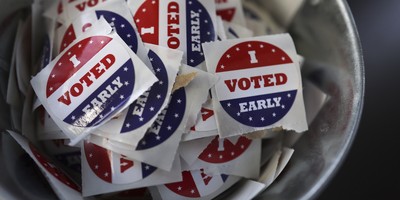Advertisement
The Supreme Court ruled in 1992 that states did not have the right to force online retailers to pay sales tax. It was an obvious tilting of the playing field, but in 1992 the game had barely started and no one really minded. Especially since, at the time, their ruling applied mainly to catalog sales as online retail was still in its infant stages. Today is a different story.
The e-commerce bias bequeathed to us by the court 20 years ago now effectively prohibits state and local governments from collecting $23 billion in legitimately owed tax revenue. More importantly, it influences consumer behavior, encouraging people to shop more online where the lack of sales tax enforcement gives cyber sellers up to a 10% built-in price advantage over their Main Street competitors.
Employees of those brick and mortar retailers are directly impacted by this injustice in the tax code. The businesses they work for are finding it harder and harder to compete with online sellers, and are forced to lay people off as a result. Thousands of jobs have already been lost and thousands more could follow if something is not done. There is a lot of talk on both sides of the aisle heralding small businesses as America’s number one job creator and the backbone of our economy. Unfortunately, it just seems to be lip service at this point.
Recommended
Advertisement
Legislation has been introduced in both the House and Senate to amend current sales tax laws, instituting rules that would make all sellers – regardless of how or where they conduct their transactions – equally responsible for collecting and remitting appropriate sales taxes. Traditional retailers already follow this policy, requiring multi-billion dollar online mega-stores to do the same is nothing more than fair. While both measures enjoy bipartisan support in their respective chambers, Congress is letting the legislation languish, to the detriment of local retailers across the country and the millions of jobs they support.
It is important to note that this is not a new tax or a tax increase. Online merchants have always owed sales tax (as have their customers) they just haven’t paid it. In addition to the much-needed revenue this has denied states, cities and counties, it has turned millions of Internet shoppers into unwitting tax dodgers, a fact that could turn into a serious problem for them in the event of an unexpected audit.
Local retailers are important to our communities. There are one million retail outlets in the U.S. and they employ almost 14 million people. In addition, they create the shopping and commercial districts that create opportunities for other employers such as restaurants and service businesses.
Advertisement
The hard-working men and women who staff Main Street retail shops deserve better treatment than this. It is patently unfair for an antiquated, poorly conceived tax policy to give online sellers a sweetheart deal while hometown businesses struggle to survive. Tell your Member of Congress to vote yes on the Marketplace Fairness Act in the Senate or the Marketplace Equity Act in the House.

























Join the conversation as a VIP Member